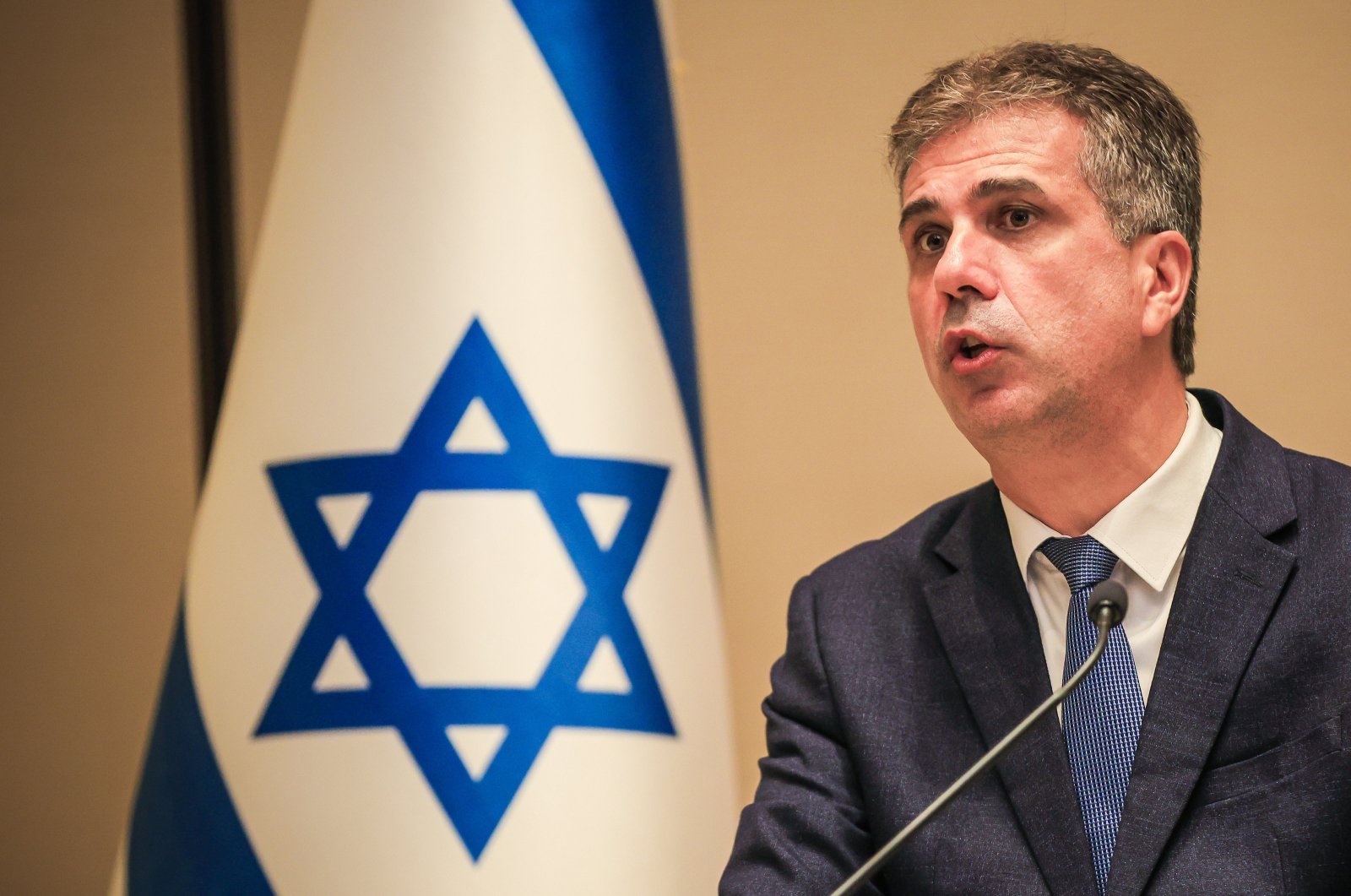
A framework U.S.-brokered deal for forging relations between Israel and Saudi Arabia could be in place by early next year, the Israeli foreign minister said Thursday after the three countries signaled progress in the complex negotiations.
An Israeli-Saudi normalization would dramatically redraw the Middle East by formally bringing together two major U.S. partners in the face of Iran – a foreign-policy flourish for President Joe Biden as he seeks reelection in late 2024.
Biden voiced optimism about the prospects in talks with Israeli Prime Minister Benjamin Netanyahu on the sidelines of the U.N. general assembly Wednesday. Separately, Saudi Crown Prince Mohammed bin Salman said "every day we get closer" to a deal.
But a Rubik's cube of tie-in issues looms. Riyadh's quest for a civilian nuclear program tests U.S. and Israeli policy. Saudi and U.S. calls for the Palestinians to make gains under any deal are unpalatable for Netanyahu's hard-right government.
"The gaps can be bridged," Foreign Minister Eli Cohen told Israel's Army Radio. "It will take time. But there is progress."
"I think there is certainly a likelihood that, in the first quarter of 2024, four or five months hence, we will be able to be in at a point where the details (of a deal) are finalized."
Such a timeline could enable the Biden administration to get through a review period in the U.S. Congress and Senate and clinch ratification ahead of the November presidential ballot.
Rare optimism
Earlier Wednesday, Saudi Arabia, Israel and U.S. voiced optimism that they were moving closer to a historic normalization of ties while Iran – their common foe – accused the kingdom of betraying the Palestinians through the U.S.-backed process.
"If you and I, 10 years ago, were talking about normalization with Saudi Arabia, I think we'd look at each other like, 'Who's been drinking what?'" Biden said during his meeting with Netanyahu.
Netanyahu, who has had rocky relations with Biden, said he believed a deal was "within our reach" and credited him.
"I think that under your leadership, Mr. President, we can forge a historic peace between Israel and Saudi Arabia," Netanyahu said.
Biden has publicly criticized Netanyahu for overhauling Israel's judiciary, a step seen by domestic critics as undermining democracy, and alluded to the concerns again as he received him in New York rather than at the White House.
Closer 'every day'
In an interview with Fox News, MBS said talks were moving forward with Israel, denying a media report that the process was suspended.
"Every day we get closer," the prince said.
But he noted the kingdom was seeking more progress on ensuring the rights of the Palestinians, as Netanyahu's government continues to pursue controversial settlements in the occupied West Bank.
"For us, the Palestinian issue is very important. We need to solve that part," he said. "We need to ease the lives of the Palestinians."
He also warned that Saudi Arabia was closely watching Iran, whose Shiite clerical leaders are arch-foes both of the conservative Saudi kingdom and Israel.
Asked how the kingdom would react if Iran develops a nuclear weapon, MBS said, "If they get one, we have to get one."
Saudi Arabia has also been seeking security guarantees, including reportedly a treaty, with the United States in return for normalizing with Israel, the region's only nuclear weapons state – even if an undeclared one.
Iran warning
Iran denies seeking a nuclear weapon and has repaired relations with Saudi Arabia in recent months through talks led by China and through the easing of a proxy conflict in Yemen.
But relations remain fraught and memories are fresh over 2019 drone attacks on Saudi oil facilities blamed on Iran.
Iranian President Ebrahim Raisi, addressing reporters Wednesday on the sidelines of the U.N. General Assembly, said that any deal that aims "to bring security for the Zionist regime" – Israel – "will certainly not do so."
"We believe that a relationship between regional countries and the Zionist regime would be a stab in the back of the Palestinian people and of the resistance of the Palestinians," Raisi said.
Israel normalized relations decades ago with neighboring Egypt and Jordan and in 2020 added three more Arab states – the United Arab Emirates, Bahrain and Morocco – in what then U.S. president Donald Trump considered a towering foreign policy achievement.
